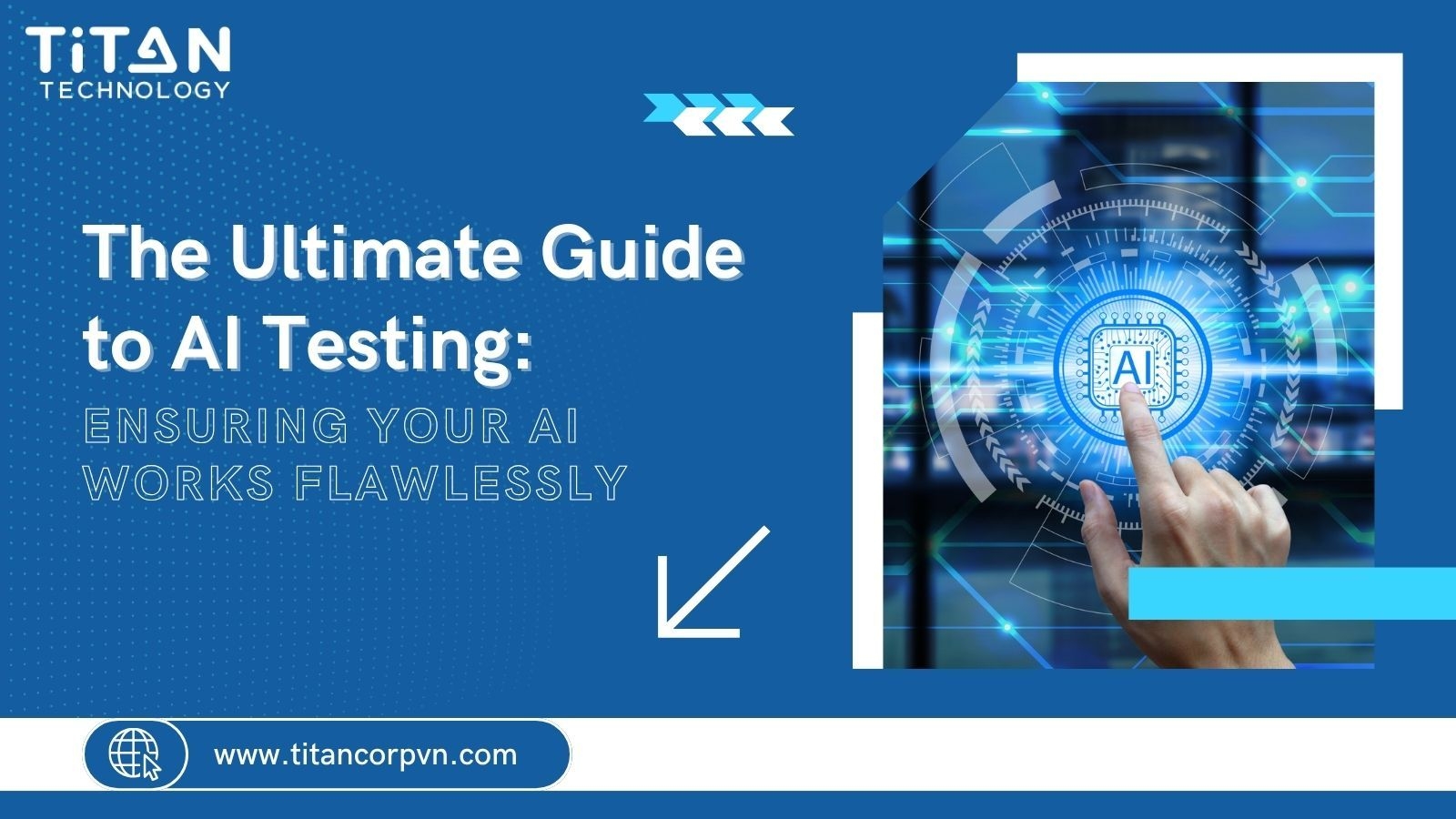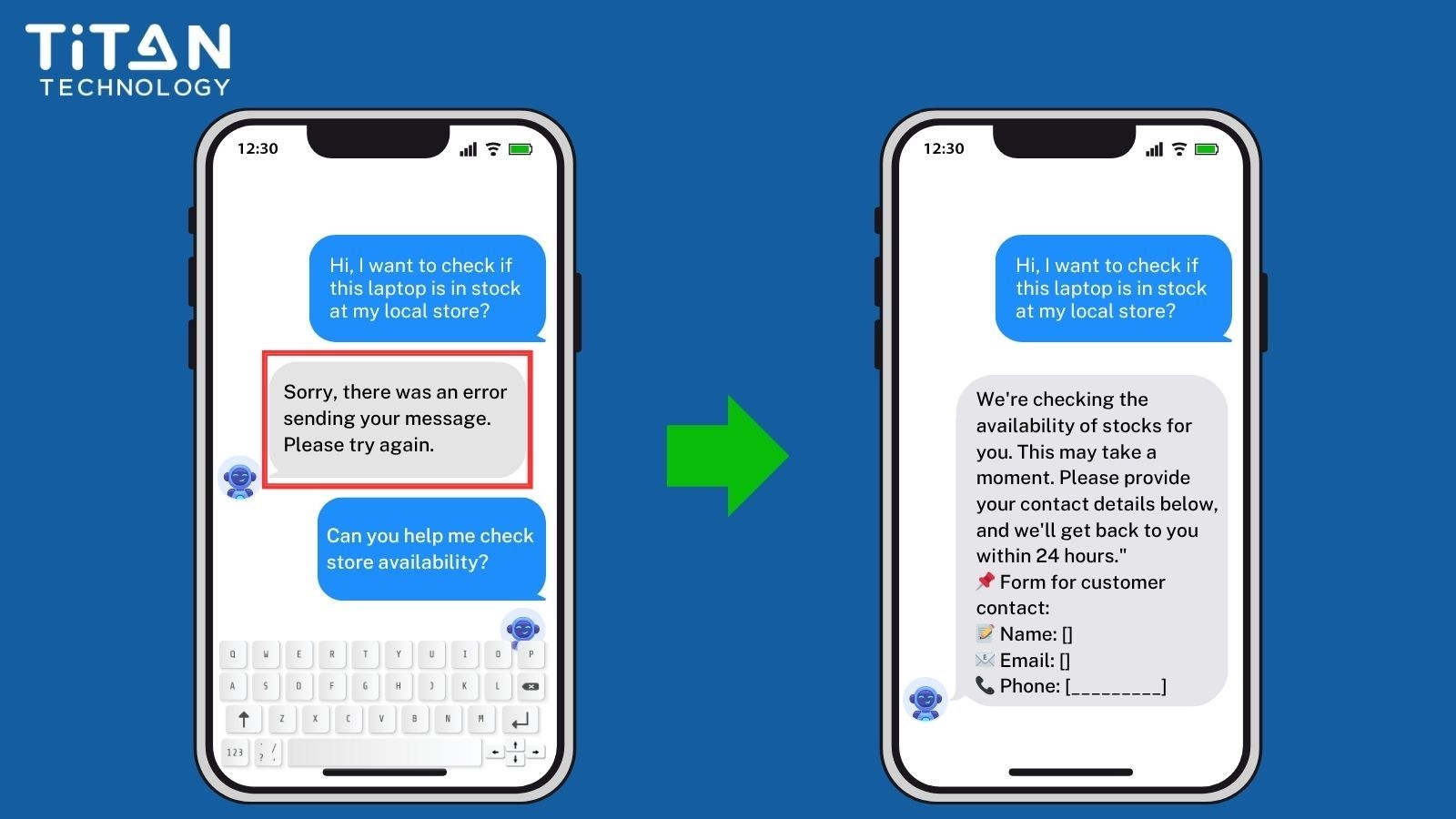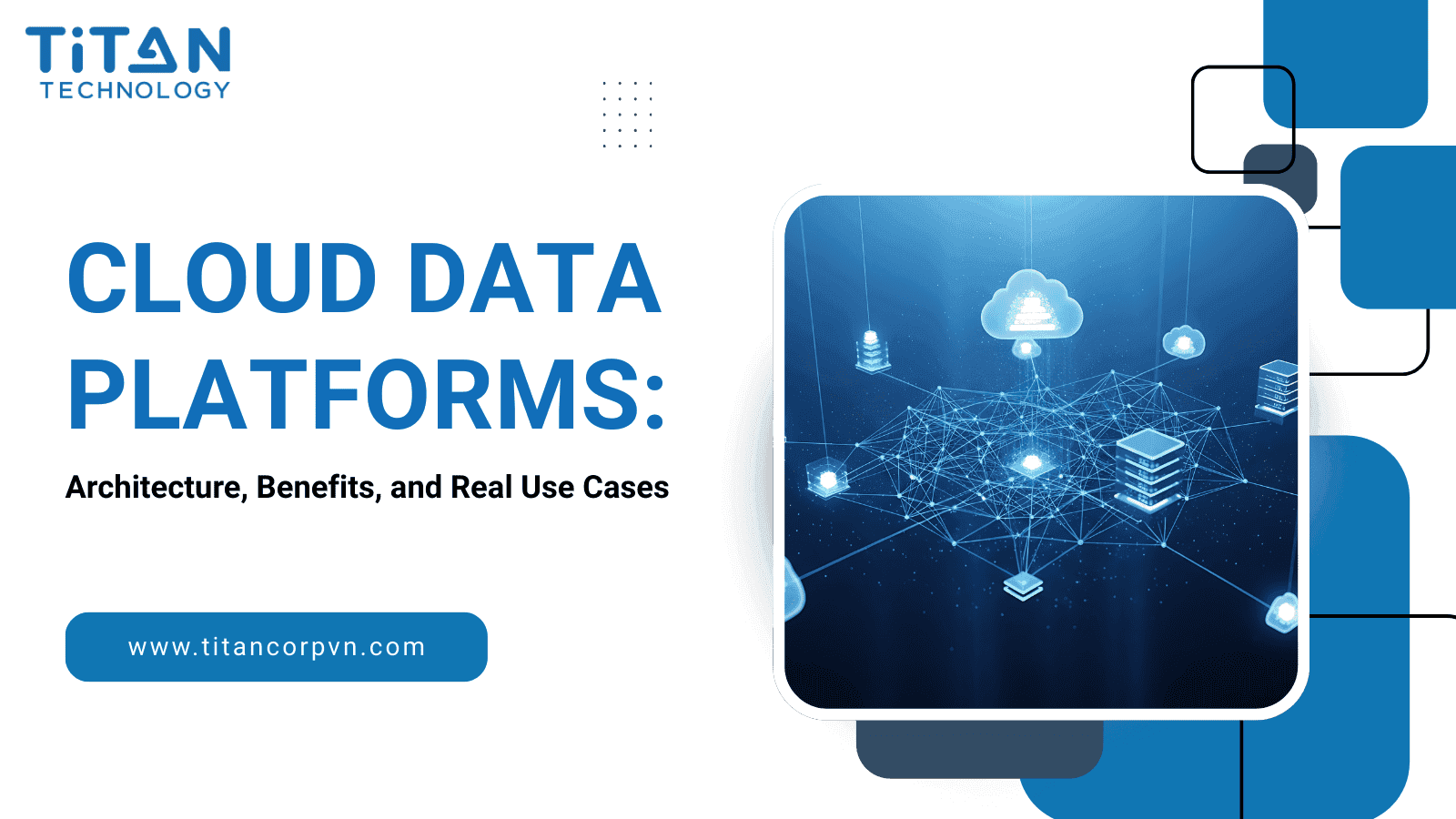Summary for Decision-Makers
AI is reshaping how businesses operate, but without proper testing, even the most advanced systems can fail to deliver reliable results. For organizations that rely on AI to enhance automation, analytics, or customer experience, quality assurance is no longer optional — it’s essential.
This article explores how AI testing ensures accuracy, security, and scalability across real-world use cases. You’ll learn the key challenges enterprises face when deploying AI and how structured testing transforms innovation into dependable performance and long-term business value.

Artificial Intelligence (AI) is revolutionizing industries, powering everything from customer service automation to data-driven decision-making. Businesses increasingly rely on AI-driven solutions to enhance efficiency and improve the user experience. But despite its vast potential, is AI perfect?
Many businesses face significant challenges when implementing AI, which can result in inefficiencies and customer dissatisfaction. Some of the most common issues include:
Chatbots respond incorrectly or irrelevantly, making customers feel uncomfortable.
Interrupted conversations, leaving users confused and frustrated.
Security risks, potentially exposing sensitive data.
Unstable performance, slowing down processes and impacting service quality.
Learn more about the challenges of using artificial intelligence and its adoption here.
Key Challenges in AI Implementation
AI-powered apps have the potential to transform industries, but when not properly implemented and tested, they can lead to several challenges. Let’s explore these challenges and solutions to ensure AI apps work effectively for your business.

1. Inconsistent Responses & Lack of Contextual Understanding
One of the most critical issues with AI is its potential to misinterpret user intent. AI models, especially when trained with insufficient data, may provide inaccurate or misleading answers. This lack of contextual understanding can confuse users, erode trust, and ultimately lead to poor decision-making. As a result, businesses may see a decline in customer satisfaction and engagement.
For example, imagine you're using a customer support chatbot to inquire about a product’s return policy. If the chatbot responds with irrelevant suggestions instead of addressing your return query, it could lead to frustration and loss of confidence in the system.
2. Latency & Performance Bottlenecks
Slow AI response times can drastically degrade the user experience of AI-powered apps. For instance, if a user interacts with an AI-powered app that recommends products, delays in response time can cause users to abandon the app or website before making a purchase. Ensuring that the AI components in your app are optimized for quick responses is crucial to preventing performance bottlenecks and increasing conversion rates.
3. Security Vulnerabilities & Compliance Risks
AI-powered apps handle large amounts of user data, which makes security a top priority. If AI models are not adequately secured, businesses risk exposing sensitive information, such as payment details or personal health records. For example, an AI-powered healthcare app must comply with HIPAA regulations to protect patient data. AI apps can be vulnerable to data breaches and legal repercussions without robust security testing.
4. Poor User Experience
AI apps that consistently provide incorrect or irrelevant responses can frustrate users and lead to app abandonment. This can be particularly damaging in customer-facing apps like AI chatbots or virtual assistants. A smooth and intuitive user experience is essential for maintaining engagement. If an AI-powered app doesn’t understand commands or provides nonsensical answers, users will quickly lose trust in the app and uninstall it.
What Is AI App Testing & Why Do You Need It?
AI application testing is the process of evaluating AI-powered applications to ensure they function accurately, are secure, and deliver a seamless user experience. Rigorous testing of AI applications not only guarantees product quality but also plays a crucial role in building trust and maximizing your business performance. A systematic review of AI in software testing shows how AI can optimize testing strategies and improve efficiency. Here’s why AI application testing is essential for your business:
Functional Testing: Ensures that the AI within your app delivers accurate responses and completes tasks correctly. For example, we test if an AI-powered recommendation engine suggests the right products based on user input, helping customers make informed decisions.
Usability Testing: Focuses on assessing the overall user interface and experience. This ensures your app is easy to navigate, and users can interact with the AI smoothly and without frustration.
Security & Compliance Testing: Verifies that your app complies with data protection laws and keeps user data safe from breaches or unauthorized access. Protecting your users’ privacy is crucial to maintaining trust and avoiding legal issues.
Performance Testing: Ensures your app performs efficiently under various conditions, like handling high traffic or processing large amounts of data, without crashing or slowing down. This always keeps your app reliable and user-friendly.
Natural Language Understanding (NLU) Testing: For apps like AI chatbots or voice assistants, it’s essential to ensure the AI accurately understands and processes user input. This ensures your users get the correct answers or actions, enhancing their overall experience.
Key Methods for AI Testing
AI apps are intricate and require various testing methods to function correctly across different devices and scenarios. Here are the key methods we use at Titan Technology:
Usability Testing: Ensures your AI app is user-friendly and offers a smooth, intuitive experience. If your app is challenging to navigate or frustrating to interact with, users may abandon it, which could hurt your business.
Performance Testing: Assesses how well your app handles varying levels of demand. For instance, we test how your AI app performs under heavy user traffic or when processing large datasets, ensuring it doesn’t slow down or crash.
Security & Privacy Testing: Examine the security measures of your AI app to identify any vulnerabilities and ensure that sensitive user data is fully protected. This is especially important for apps handling personal or financial information.
Regression Testing: Since AI apps are frequently updated with new features or improvements, we test to ensure that these updates don’t disrupt existing functionality or introduce new bugs, keeping your app reliable over time.
How AI Testing Accelerates Business Success
At Titan Technology, we understand that the foundation of any successful AI application lies in rigorous testing. Our specialized AI Testing framework enables enterprises to identify and resolve issues before they affect end users, ensuring robust security, consistent reliability, and a seamless user experience in real-world conditions.
Detect Issues Early: We identify potential problems such as inaccurate responses or delayed processing times at the earliest stage. By addressing these issues proactively, businesses can prevent costly disruptions and minimize post-launch maintenance expenses.
Optimize AI Interactions: We rigorously assess your AI system’s Natural Language Understanding (NLU) and response generation across both text and voice inputs. This ensures that interactions are natural, precise, and truly aligned with user intent, resulting in higher satisfaction and sustained engagement.
Enhance Stability and Scalability: Our performance tests simulate intensive, real-world workloads to evaluate how your AI behaves under pressure. The insights help you maintain stability and responsiveness even during high-traffic periods or complex data operations.
Deliver Actionable Insights: Following each test cycle, we provide a detailed report that highlights key findings and prioritized recommendations. These insights drive continuous improvements in functionality, security, and operational efficiency, helping your AI system perform reliably and scale with confidence.
Case Studies: How Businesses Enhanced Their AI Performance with Titan Technology’s Testing
We’ve helped businesses across various industries enhance their AI app performance through rigorous testing. Here are two real-world examples:
Case Study 1: Enhancing AI Chatbot Performance in E-Commerce
AI chatbots should drive sales, not frustrate customers. But is your chatbot helpful?
A leading e-commerce platform realized its AI-powered chatbot was pushing customers away. Instead of providing practical assistance, the chatbot delivered inconsistent responses, robotic interactions, and technical errors, leading to high cart abandonment rates and lost conversions. When chatbots fail, businesses don’t just lose one customer - they risk damaging their brand reputation and long-term customer loyalty.
What’s the solution? Instead of letting chatbot failures frustrate users, businesses must implement AI Testing to fine-tune performance, enhance accuracy, and improve customer interactions. Here’s how Titan Technology helps resolve these challenges.

Failure Scenario – Technical Error: Message Not Sent in E-Commerce
Situation: A customer is browsing an e-commerce website and needs assistance with a product before making a purchase. They initiate a conversation with the AI-powered chatbot.
💬 User: "Hi, I want to check if this laptop is in stock at my local store?"
🤖 Chatbot: "Sorry, there was an error sending your message. Please try again."
💬 User (tries again): "Can you help me check store availability?"
🤖 Chatbot: No response.
Impact on Business:
Customer frustration: Users expect immediate responses from chatbots. A failure in sending messages creates a poor experience.
Lost sales opportunity: If the chatbot fails to respond, the customer may abandon the purchase and switch to a competitor.
Damage to brand trust: Frequent chatbot failures can make customers perceive the e-commerce platform as unreliable.
Root Causes of the Failure:
Backend API connection failure: The chatbot relies on inventory databases, and if the API connection fails, the response cannot be retrieved.
Server overload: During peak shopping seasons, too many users may overload the chatbot, causing message failures.
Poor error-handling mechanism: The chatbot does not provide an alternative solution when the system fails.
Solution with AI Testing
At Titan Technology, we ensure chatbot reliability through comprehensive AI Testing:
API Stability Testing – We simulate multiple API calls to ensure the chatbot can consistently retrieve and display stock availability.
Load Testing – We test how the chatbot performs under high-traffic conditions to prevent crashes during peak shopping periods.
Error Recovery Testing – Instead of a generic error message, the chatbot should provide a useful response like:
"We're checking the availability of stocks for you. This may take a moment. Please provide your contact details below, and we'll get back to you within 24 hours."
Name: []
Email: []
Phone: [_________]"
Case Study 2: Strengthening Security for AI-Powered Customer Support in Financial Services
A financial services firm relied on an AI-powered customer support app to assist customers, but hidden security vulnerabilities put sensitive financial data at risk. Additionally, compliance issues threatened the firm’s ability to meet strict regulatory standards.
Our Solution:
We conducted comprehensive security and compliance testing, uncovering key vulnerabilities and recommending critical patches. As a result, the firm:
Eliminate security risks, ensuring 100% compliance with industry regulations
Strengthened customer trust by enhancing data protection
These case studies highlight the importance of thorough AI app testing in preventing errors, improving the user experience, and safeguarding data. Whether you're launching an AI chatbot app, an automated support app, or any AI-powered application, testing ensures your technology is accurate, reliable, and secure.
How to Get Started with AI Testing
Getting started with AI Testing is a structured and transparent process. At Titan Technology, we work closely with your team to define objectives, execute precise testing, and deliver insights that drive measurable improvements in your AI systems.
Step 1: Initial Assessment and Scope Definition
Unser Team beginnt mit einer gründlichen Analyse Ihrer aktuellen KI-Umgebung, Ihrer Geschäftsziele und bestehenden technischen Herausforderungen. Gemeinsam definieren wir den Testumfang, legen klare Erfolgskriterien fest und identifizieren die zentralen Bereiche, in denen Leistung und Genauigkeit für Ihr Unternehmen am wichtigsten sind.
Step 2: Tailored Strategy and Objective Setting
Every AI model has unique requirements. Whether your goal is to drastically improve response accuracy, enhance security against bias, or increase scalability, we tailor a specific testing strategy that aligns perfectly with your priorities and operational context.
Step 3: Execution, Analysis, and Insight Delivery
Our QA and AI specialists conduct a comprehensive range of tests, covering functionality, performance, security, and user interaction. Upon completion, you’ll receive comprehensive reports detailing the system behavior, key metrics, and actionable opportunities for optimization.
Step 4: Actionable Roadmap and Continuous Evolution
Using the insights gathered, we provide an actionable roadmap and guide you in fine-tuning your AI systems, addressing vulnerabilities, and strengthening overall performance. A well-tested AI doesn’t just perform reliably — it evolves intelligently, supporting business growth and building long-term trust.
Conclusion
AI testing is no longer optional. It has become a vital component in ensuring that every AI-powered application operates with precision, reliability, and security. As artificial intelligence continues to shape customer experiences and business decisions, rigorous testing safeguards both user trust and organizational value.
A well-tested AI system delivers consistent results, adapts to changing conditions, and scales efficiently as business demands grow. Through structured testing across functionality, performance, and compliance, companies can prevent costly errors, enhance customer satisfaction, and maintain a strong competitive edge.
Don't leave your AI success to chance. Titan Technology helps enterprises transform raw AI innovation into dependable, high-impact performance. Discover how our specialized AI Testing Services can make your applications smarter, safer, and ready to confidently lead the future.



